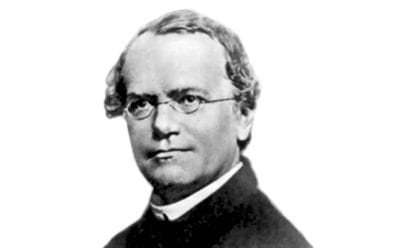Father of Genetics

Johann Mendel was an Austrian scientist who is famous as the founder of the new science of genetics. Mendel verified that the inheritance of certain traits in pea plants follows particular patterns, which now is referred as the laws of Mendelian inheritance. His work was recognised by the turn of the 20th century. The independent rediscovery of these laws formed the foundation of the modern science of genetics.
On July 20, 1822, Mendel was born in an ethnic German family in Hyn?ice, Czech Republic. During his childhood, Mendel worked as a gardener, studied beekeeping, and as a young man attended Gymnasium in Opava. In 1840, he joined the University Of Olomouc, Faculty of Philosophy.
In 1843 Mendel began his training as a priest. Born Johann Mendel, he took the name Gregor upon entering religious life. In 1851 he was sent to the University of Vienna to study under the sponsorship of Abbot C. F. Napp. Besides his work on plant breeding while at St Thomas's Abbey, Mendel also bred bees in a bee house that was built for him, using bee hives that he designed. He also studied astronomy and meteorology, founding the 'Austrian Meteorological Society' in 1865. The majority of his published works were related to meteorology. After completing his work with peas, Mendel turned to experimenting with honeybees to extend his work to animals.
He also described novel plant species, and these are denoted with the botanical author abbreviation "Mendel."
Mendel died on January 6, 1884, at age 61, in Brno, Moravia, Austria-Hungary (now Czech Republic), from chronic nephritis.

 For all latest news, follow The Daily Star's Google News channel.
For all latest news, follow The Daily Star's Google News channel. 



Comments